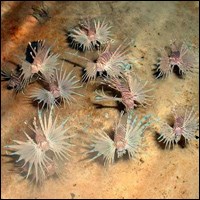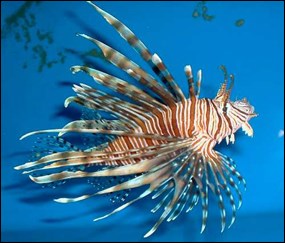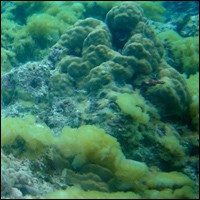
Photo courtesy of USGS The lionfish is a venomous predatory fish native to the Indo-Pacific waters that was introduced into Atlantic waters as early as the 1980s. Lionfish have the potential to impact the marine ecosystems of south Florida. Preliminary evidence suggests that the proliferation of lionfish may diminish native species of commercial, recreational, and ecological importance. In addition, lionfish stings—though rare—are painful and occasionally result in serious injury. 
Photo courtesy of USGS The invasion of the lionfish is unprecedented, as it is currently the only known invasive marine fish recognized to have established itself throughout the Caribbean and the coastal waters of the southeastern United States. Management and control may require novel approaches, close coordination across jurisdictional boundaries, and assistance from the general public. Preliminary evidence suggests the proliferation of lionfish may diminish native species, change community composition, alter ecological function, and present a hazard to human health.

Image courtesy of CORE The Everglades and Dry Tortugas lionfish management plan is currently in review. The preferred alternative outlined in the plan is to "target specific areas within each park to suppress the invasion of lionfish." Key areas will be identified where staff will continually survey for and remove lionfish on a regular schedule. These key areas will be preserved in their natural state to afford visitors opportunities to experience the character of park resources prior to invasion by lionfish. |
Last updated: July 29, 2015
